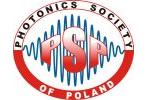|
We have a great pleasure to announce a lecture of prof. Orazio Svelto, Politecnico di Milano (Italia) entitled: Ultrafast Science: from Picosecond to Attosecond Laser Pulses
on October 26, 2009 at 16.15 (room 111, Physics Building, 75 Koszykowa Str. in Warsaw).
After the lecture it would be a possibility to interact with prof. Svelto on potential areas of the Italian-Polish cooperation in the field of optics and photonics. Abstract (PDF)
Short biography of Orazio Svelto (PDF)
Abstract of lecture:
In a first part of this seminar, a review will be presented of the development of ultrafast science starting from the initial generation of pulses with a few picoseconds (1 ps = 10-12 s) from mode-locked solid-state lasers and ending with the generation of pulses with ~ 100 femtosecond (1 fs = 10-15 s) duration. Examples of applications of these sub-picosecond pulses to several fields, from Physics to Chemistry and Biology and leading to the Nobel Prize for Chemistry awarded in 1999 to Ahamed Zewail, will be discussed. In as second part of the seminar, the most recent activities to generate laser pulses with duration of a few femtosecond (few-cycle laser pulses) of high energy and the application of these pulses to high-order harmonic generation and to the studies of electron dynamics in simple molecules such as D2, molecule will be discussed. High-order harmonic generation with few-cycle laser pulses and with stabilization of the carrier-envelope phase has then allowed our group to recently obtain isolated XUV pulses with record duration of only 130 attoseconds (1 as = 10-18 s). The potentiality of these pulses to studying electron dynamics in atoms, molecules and nanostructures will also briefly be considered. Short biography of Orazio Svelto:
Orazio Svelto is professor of Physics of Matter at the Polytechnic Institute of Milan. He is also responsible for the Institute of Photonics and Nanotechnologies of the Italian National Research Council –Milano section. His research has covered a wide range of activity in the field of Laser Physics and Photonics, starting from the early beginning (1962) of these disciplines. This activity includes ultrashort-pulse generation and applications, physics of laser resonators and techniques of mode selection, laser applications in biology and biomedicine, and physics of solid-state lasers. Professor Svelto is the author of more than 200 scientific papers and holds 3 patents; his researches have been the subject of more than 60 invited papers at international conferences. He is also the author of the book Principles of Lasers (Springer, 5th Ed., 2009) which has currently been adopted at several universities in Europe and United States and whose previous editions were also translated in Russian, Chinese, Greek, Farsi and Arabic languages. He served as a Program Chairman, Conference Chairman or Honorary Chairman at several international conferences; in particular, he was program chair of the IX International Quantum Electronics Conference (Amsterdam, 1976), general co-chair of the first CLEO-Europe Conference (Amsterdam, 1994) and program co-chair for 2002 International Quantum Electronics Conference (Moscow). He has carried out evaluations for the Royal Swedish Academy of Sciences. He is the recipient of several awards including the Quantum Electronics Prize of the European Physical Society and the Charles H. Townes Award of the Optical Society of America, which are, respectively, the most important European and International awards in the field. He is fellow of the Optical Society of America and of the Institute of Electrical and Electronics Engineers and he is an elected member of several Italian academies including the National Academy of Sciences and the “Accademia Nazionale dei Lincei”. In the celebration of the 50th anniversary of the laser, occurring next year in San José, CA, in connection with the International Conference CLEO, Svelto has been selected as one of the 10 speakers, as laser pioneers, out of which 8 are Americans (including two Nobel prizes), one Russian (Nobel prize) and Prof. Svelto. |






